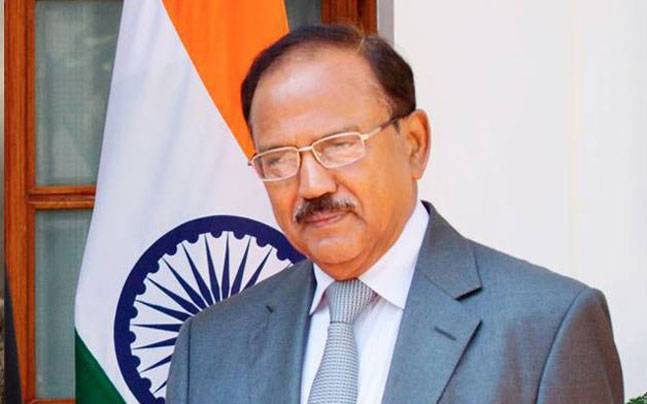In what can be defined as a major development concerning India’s defence preparedness, Hindustan Times has reported that India’s Defence Planning Committee (DPC) headed by the National Security Advisor (NSA) Ajit Doval is all set to submit the National Security Strategy (NSS) in the month of October. The NSS would effectively serve as the country’s military doctrine. It would focus on the future war fronts, requirement of naval expeditionary forces, and the projection of comprehensive national power.
It must be noted that the government had notified a Defence Planning Committee (DPC) headed by NSA Ajit Doval last year. It was tasked with drafting a new national security strategy, a defence diplomacy plan, a strategy to boost the defence manufacturing ecosystem and plans on capacity enhancement and procurement. As per a HT report, three senior officials involved in the exercise of formulating the NSS speaking on condition of anonymity said that the much awaited report is now mostly completed and final touches are being given to it before it would be submitted next month.
The unclassified portion of the NSS would be made public once the Modi government or the Cabinet Committee on Security (CCS) accepts this document defining India’s military doctrine. The DPC had been set up in the month of April last year with the object of establishing the country’s military doctrine, however the report was held up pending the creation of the post of Chief of Defence Staff (CDS), a key post that would function as the single point military advisor for the government.
Some of the important constituents of this much awaited document are going to be defining the military threat to India in terms of the number of possible fronts. Today, the Indian military is preparing itself for a two-front military threat in the North and the West in a worst case scenario. However, once the NSS, prepared by India’s top spy Ajit Doval, defines the military threat to India, it would serve as a guideline for the defence ministry to decide upon the stock of ammunition to be kept as ready stock. Currently, India’s preparedness matches a 10-day intensive war. However, once the NSS is submitted by Ajit Doval, the defence ministry might decide on favour of a revision in the level of ammunition stocks. The NSS is also expected to define India’s position on no first use of nuclear weapons in the current context as well as certain future circumstances. Recently, Defence Minister Rajnath Singh’s comments about the No First Use policy had suggested that India might witness a shift in its nuclear weapons doctrine.
The Ajit Doval led committee would also delve into the strategic sphere of Indian Navy’s future posture. It will decide upon the requirement of a naval expeditionary force. The NSS will also determine whether the Indian Navy needs more aircraft carriers or development of air bases in any of the 611 islands located at strategic points in the Arabian Sea, Bay of Bengal and Andaman Sea. This would give it the capability of venturing deep into the Indian Ocean, or the Persian Gulf or even the South China Sea. The tri-service command in Andaman & Nicobar Islands already appears as a point which could project India’s might into the South China Sea. It must be noted that the Chinese strategy of encircling India in line with the ‘String of Pearls’ theory has since long been a matter of concern for India. At any given point of time, the Chinese Navy deploys six to seven warships in the strategically crucial region supposedly for carrying out anti-piracy drills in the Gulf of Aden. However, sources say that the main aim of the Chinese Navy is power projection in the Indian Ocean Region, and this shall be an area of focus for India’s NSA Ajit Doval. China wants to spread its influence in the region given its importance on account of the sheer volume of trade that passes through this region. In such circumstances, it is in India’s interests to develop adequate surveillance and monitoring capabilities in the Indian Ocean Region. The NSS, by delving into Indian Navy’s future posture is going to give a definite shape to India’s policy over this issue.
The first tenure of the Modi government witnessed some major defence acquisitions as the government went on a military modernisation spree. All three defence forces have been equipped with some crucial weapons and equipment. It can be said that the first tenure of the Modi government helped the India transform into a major defence power. Having gained crucial defence capabilities, the government should now focus upon developing a potent and strategically effective military posture. In the light of such circumstances, the DPC, led by NSA Ajit Doval, seems to be moving towards final submission of the NSS at just the right time.
